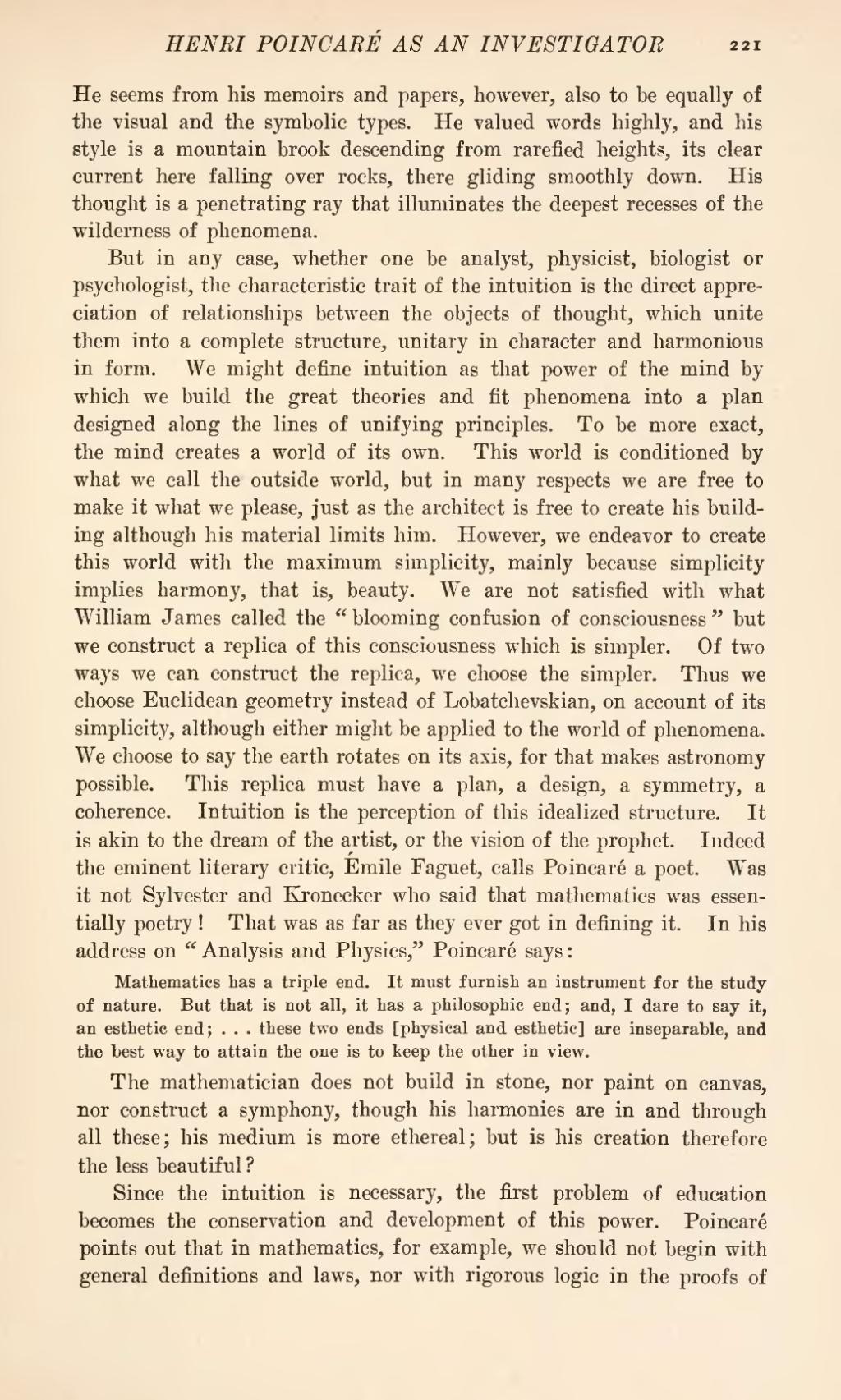He seems from his memoirs and papers, however, also to be equally of the visual and the symbolic types. He valued words highly, and his style is a mountain brook descending from rarefied heights, its clear current here falling over rocks, there gliding smoothly down. His thought is a penetrating ray that illuminates the deepest recesses of the wilderness of phenomena.
But in any case, whether one be analyst, physicist, biologist or psychologist, the characteristic trait of the intuition is the direct appreciation of relationships between the objects of thought, which unite them into a complete structure, unitary in character and harmonious in form. We might define intuition as that power of the mind by which we build the great theories and fit phenomena into a plan designed along the lines of unifying principles. To be more exact, the mind creates a world of its own. This world is conditioned by what we call the outside world, but in many respects we are free to make it what we please, just as the architect is free to create his building although his material limits him. However, we endeavor to create this world with the maximum simplicity, mainly because simplicity implies harmony, that is, beauty. We are not satisfied with what William James called the "blooming confusion of consciousness" but we construct a replica of this consciousness which is simpler. Of two ways we can construct the replica, we choose the simpler. Thus we choose Euclidean geometry instead of Lobatchevskian, on account of its simplicity, although either might be applied to the world of phenomena. We choose to say the earth rotates on its axis, for that makes astronomy possible. This replica must have a plan, a design, a symmetry, a coherence. Intuition is the perception of this idealized structure. It is akin to the dream of the artist, or the vision of the prophet. Indeed the eminent literary critic, Émile Faguet, calls Poincaré a poet. Was it not Sylvester and Kronecker who said that mathematics was essentially poetry! That was as far as they ever got in defining it. In his address on "Analysis and Physics," Poincaré says:
Mathematics has a triple end. It must furnish an instrument for the study of nature. But that is not all, it has a philosophic end; and, I dare to say it, an esthetic end . . . these two ends [physical and esthetic] are inseparable, and the best way to attain the one is to keep the other in view.
The mathematician does not build in stone, nor paint on canvas, nor construct a symphony, though his harmonies are in and through all these; his medium is more ethereal; but is his creation therefore the less beautiful?
Since the intuition is necessary, the first problem of education becomes the conservation and development of this power. Poincaré points out that in mathematics, for example, we should not begin with general definitions and laws, nor with rigorous logic in the proofs of
